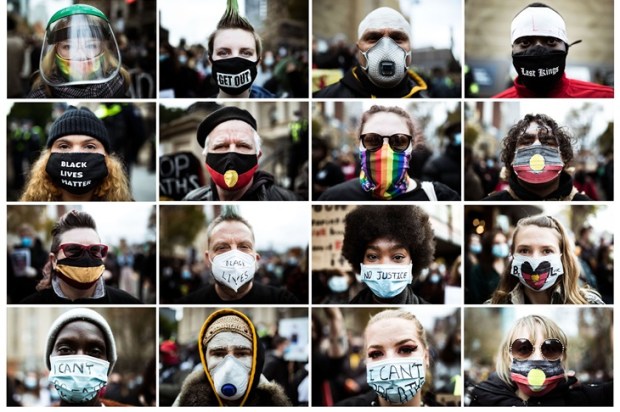Get ready for a profound disruption to some core big business operations in Australia.
The Albanese government has committed to introducing new unfair contract legislation in the current parliamentary sitting period. We too often think of economic reform as ‘big bang’ items such as tariff reductions or floating the dollar. Those big moves are all behind us. Nonetheless, this reform – unfair contract laws with real teeth – is serious stuff.
Big businesses that deal with consumers and small businesses have a structural dependency on standard form contracts. Those contracts are template contracts drawn up by large businesses which govern the trillions of transactions they conduct with millions of consumers and small businesses.
Surprise, surprise! Those contracts are invariably constructed to give the large businesses control of the transactions. Think phone, finance, internet, power, and insurance contracts just for starters.
Every time you click ‘agree’ on the Uber app to accept a ride, you’ve agreed to a standard form contract which is endlessly long and written in small print. The driver coming to collect you has also agreed to a (different) standard form contract. Book a flight online. Again, click ‘agree’. You’ve entered another standard form contract agreement.
There’s nothing wrong with this standard form contract system. In fact, it’s a total positive. Standard form contracts have been in operation for aeons, but the Internet has ramped up their use. The speed of such online transactions is now at an ‘intergalactic warp rate’ with the numbers impossible to calculate.
But the historic problem with standard form contracts is that they have always been written by the lawyers of big business. And it’s no surprise that such contracts have exclusively sought to protect the interests of big business. This has been the root source of many a scandal where big businesses have exploited consumers and small business people. Numerous government regulations have been created to stop specific areas of exploitation.
Australia’s unfair contract laws are arguably the world’s first (and in global terms possibly the only) laws that have addressed the issue holistically. They were introduced for consumers in 2010 and extended to small businesses in 2016. Insurance products were included in 2021.
Some lawyers howl in grief that unfair contract terms override the principle that a contract once entered into is set in concrete, even if it disadvantages one party. This is a perverted view of contract. The Australian unfair contract laws effectively codify in statute the elements under common law that make a commercial contract a proper contract.
As examples, unfair contract laws hold that if a standard form contract enables one party but not the other to unilaterally change the price of a contract, or cancel a contract or change its terms, then the contract is ‘unfair’.
The Australian Consumer and Competition Commission along with the Australian Securities and Investment Commission have been responsible for enforcing the unfair contract laws. Since 2016, the ACCC, with then chair Rod Sims at the helm, has consistently expressed frustration at big business ignoring the laws. Despite education and prosecution, too many big businesses have given the middle finger to the laws.
To his credit, Rod Sims led the charge for a ‘beefing up’ of the laws. There’s been an extensive consultation process since 2018. A ‘beefed up’ Bill was presented to Parliament earlier this year, but the Morrison government failed to push it through. It’s this Bill that the Albanese government has as a template. Importantly, Albanese’s stated commitment is to make unfair contracts ‘illegal’. This is the big breakthrough.
Until now, unfair contract terms could only be ‘voided’. There were no penalties for their use. Unfair contracts could only be sanctioned after they had done harm. This enabled the ‘let’s screw people over’ big businesses to laugh off the laws.
If Albanese implements the template Bill, unfair contracts will be illegal with civil penalties of up to $100,000 for individuals and $10 million for corporations. A loss will no longer need to be proven for a court to declare a term unfair. A court will be able to make an order if it thinks there might be a loss. In other words, harm can be prevented before it occurs. Other provisions give real bite to enforcement.
Further, the current $300,000 threshold for the size of a contract subject to the laws is being removed. There will be no constraining limit. The size of a small business to which the laws offer protection is being lifted from 20 to 100 employees.
On any assessment this is a major economic reform. It will protect consumers. But just as importantly, small businesses will discover a new level of equality of power with big businesses as both buyers and sellers of goods and services. Australia’s 1.3 million self-employed sole traders will have protections from bullying clients that they have never had before.
On many levels the commitment from the Albanese government is a great boon for small business people. But it’s also good for those big businesses who want to have a fair and respectful relationship with their customers and suppliers.
Ken Phillips Executive Director Self Employed Australia
Got something to add? Join the discussion and comment below.
Get 10 issues for just $10
Subscribe to The Spectator Australia today for the next 10 magazine issues, plus full online access, for just $10.


























Comments
Don't miss out
Join the conversation with other Spectator Australia readers. Subscribe to leave a comment.
SUBSCRIBEAlready a subscriber? Log in